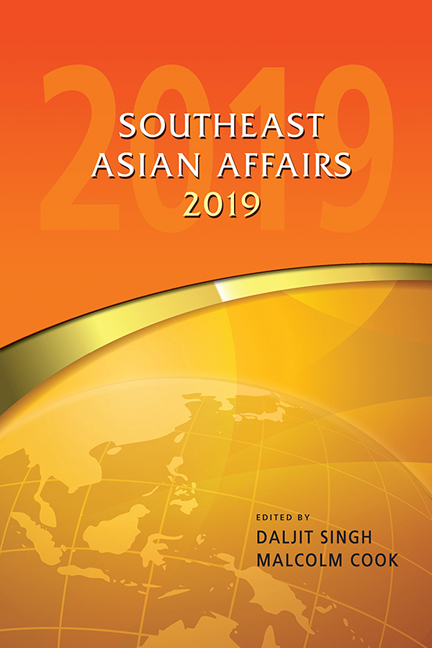Singapore in 2018: Between Uncharted Waters and Old Ghosts
from SINGAPORE
Published online by Cambridge University Press: 07 September 2019
Summary
For the city state of Singapore, 2018 was a year of many firsts. It marked the midpoint of the 13th Parliament of Singapore within a manifestly post–Lee Kuan Yew era. The incumbent government of the People's Action Party (PAP) began the year with the pleasant surprise that economic growth in 2017 had reached 3.6 per cent. This exceeded the modest expectations of 1.5 to 3.5 per cent. But despite the positive start, 2018 was to be filled with headwinds for Singapore, both new and familiar. Top of the list was the revival of tensions with Malaysia, as well as a newly elected PAP Central Executive Committee, marking a crucial occasion of fourth-generation leadership transition for the world's third-longest ruling political party. On the international front it was the year of summits, with Singapore hosting two major events: the North Korea–United States Summit — the “Trump-Kim summit” — and the 33rd ASEAN Summit, both amidst the trade war between China and the United States. Meanwhile, in local politics, other notable firsts included the formation of the Select Committee on deliberate online falsehoods and the convening of its public hearings, as well as a cyberattack on SingHealth, Singapore's largest healthcare provider, resulting in the records of about 1.5 million patients being compromised. On the ground, inequality took the crown as buzzword of the year in the public consciousness as Singapore grappled with various encounters, propelling the otherwise academic term into the limelight. On the policy side, the introduction of the Merdeka Generation Package set a new bar for the government's commitment to reducing the healthcare costs of elderly Singaporeans.
4G Leadership Transition of the PAP
In 2018, political leadership successions and renewal went into high gear both for major political parties and the government. It began with a joint-statement in January by a self-identified fourth-generation (dubbed 4G) team consisting of sixteen ministerial leaders under the ruling People's Action Party, as part of the party's commitment to pick a leader “in good time”. The statement came barely a week after a social media post made by Emeritus Senior Minister Goh Chok Tong urging the current cohort of the political leadership to consolidate its succession challenge, including choosing a designate from among them for the post of prime minister.
- Type
- Chapter
- Information
- Southeast Asian Affairs 2019 , pp. 297 - 324Publisher: ISEAS–Yusof Ishak InstitutePrint publication year: 2019



